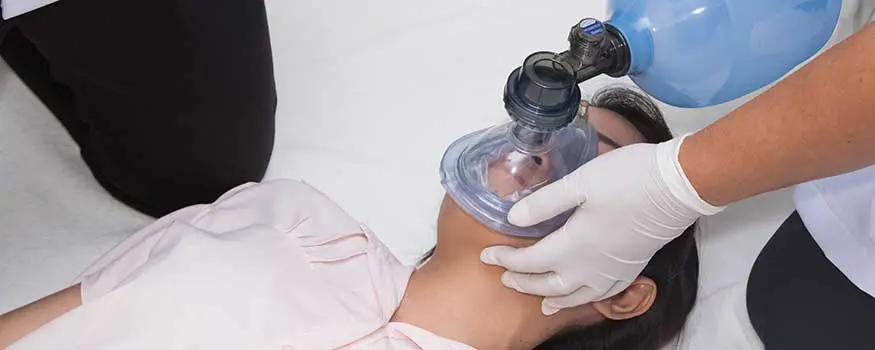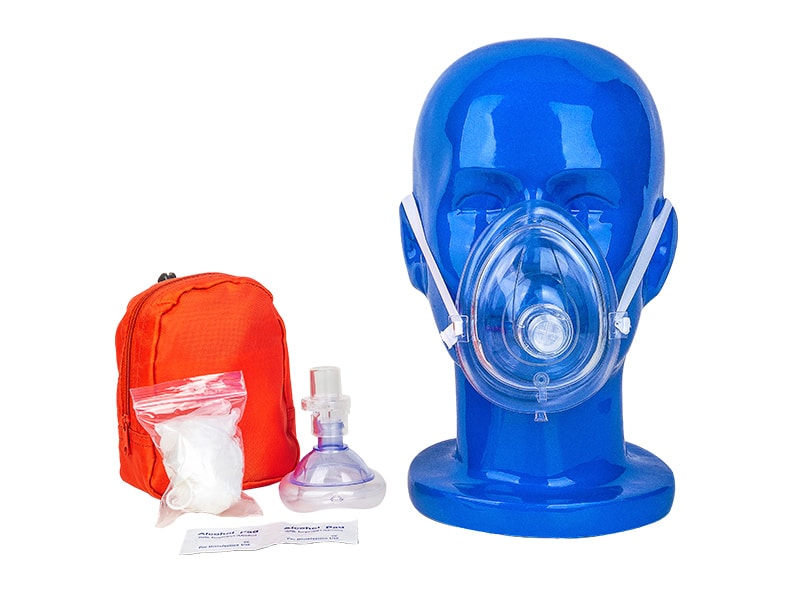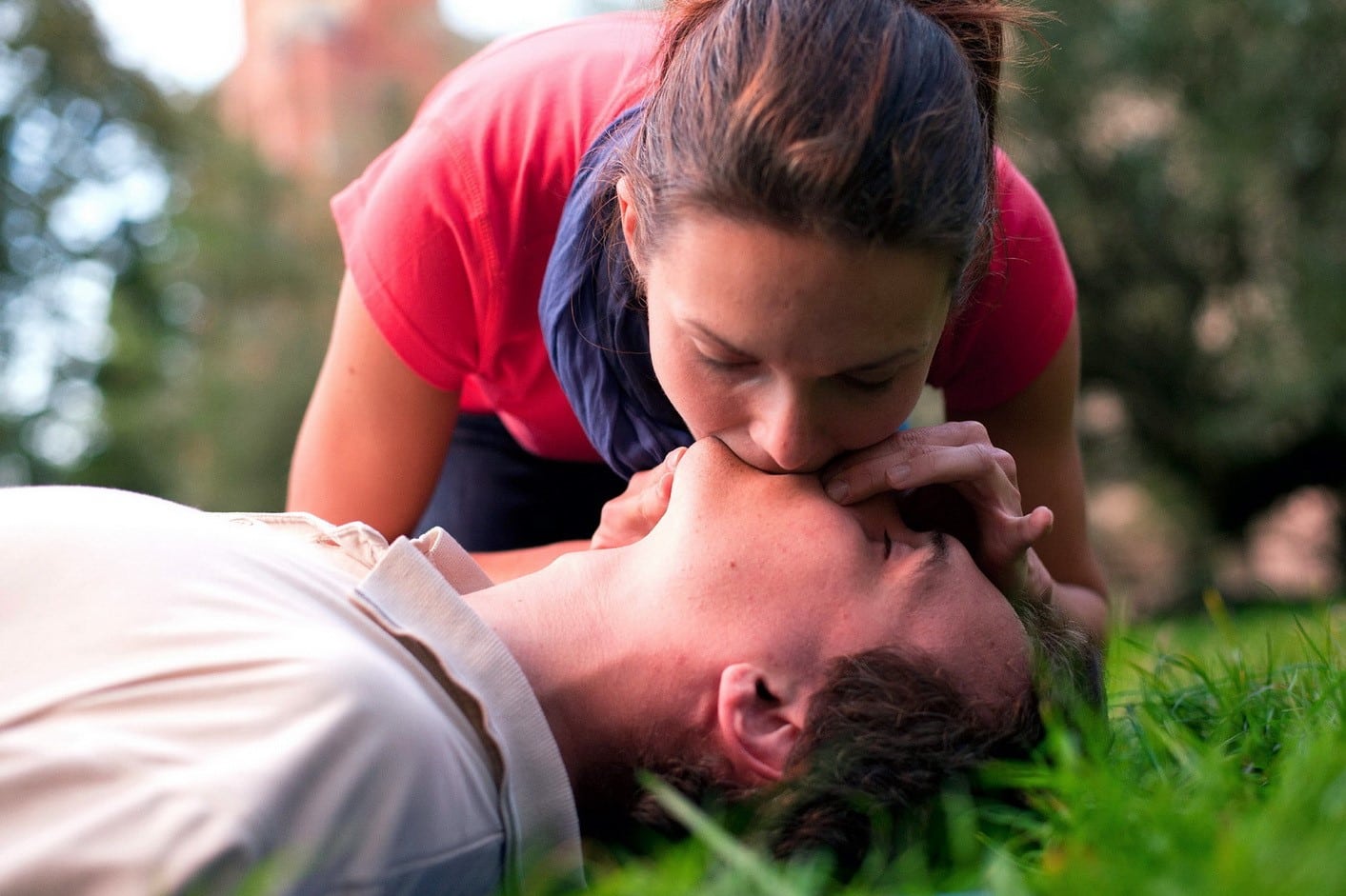CPR Face Shield vs. CPR Rescue Mask vs. BVM

For the Public, we have a few options from “no-barrier” mouth-to-mouth to Face-Shields and Rescue Masks. Mouth-to-Mouth should always be reserved as a Plan-B if there is a Face-Shield or Rescue Mask available. Mouth-to-Mouth Ventilations should be performed at the Rescuer’s discretion, if you do not feel comfortable with Mouth-to-Mouth Ventilations, please refer to Hands-Only CPR as the next best option.

Face-Shields are the most common devices found within First Aid Kits, AED Rescue Kits, or CPR Kits and provide a cost-effective option ($2-$3 each) for Organizations or Individuals. Face-Shields are thin sheet of plastic with a small one-way valve that usually have elastic bands to place around the patient’s Head/Ears to reduce any movement of the shield. The problem with these Face-Shields are mainly seen when a patient begins to bleed, vomit, or eject sputum (spit) from the mouth during the CPR, much like saran wrap or plastic wrap, once fluid is introduced to the Face-Shield it can become a bunched-up mess of plastic and fluid. So, at IGH we always recommend the use of Rescue Masks.

Rescue Masks are rigid plastic masks with a face seal and one-way valve, that provide structure to the Ventilations and are easy to use once mastered. These Rescue-Masks come in multiple sizes and are one-use only devices that provide excellent protection from any bodily fluids that a rescuer may encounter. Students learn how to use the “C-E” Grip Method to provide an adequate seal and “head-tilt, chin-lift” for easy Ventilations. Most Rescue Masks will also come with an elastic band that helps with placement and reduces strain on the rescuer. These Rescue Masks are also cost-effective ($7-$8 each) and include a carrying kit that can be placed in a purse, backpack, or car. In my opinion, spending the extra money will provide an extra layer of protection for the rescuer and even better ventilations than Mouth-to-Mouth or Face Shields can provide.

If you or your organization need Ventilation Devices for possible CPR’s or Rescue Breathing, first consult with your Safety Officer and see if they have any recommendations. If not, then we recommend buying a Rescue Mask from a reputable supplier online or BVM’s from a Medical Supplier for Healthcare Professionals.
Thanks for reading, and as always, if you ever have any questions or comments please feel free to reach out to our office!
Brent Bousquet, President
IGH Health, Fire, & Safety
Office: (817) 809-8677
Website: www.ighsafety.com

